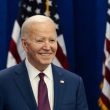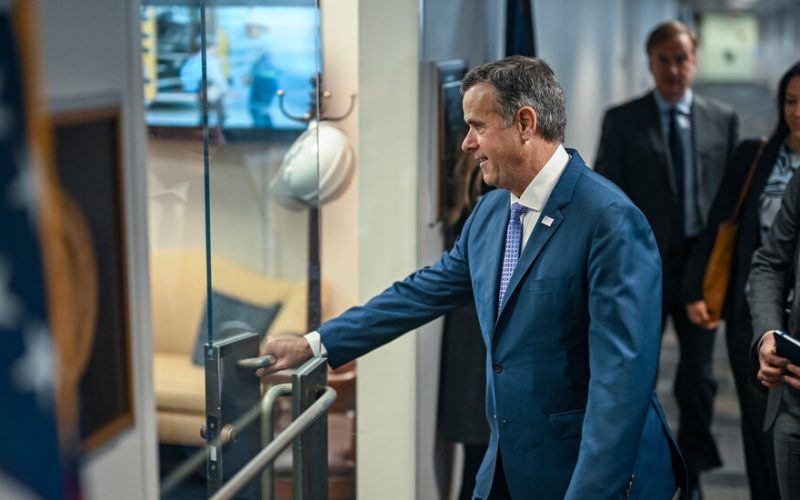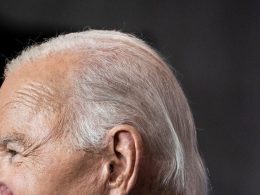John Ratcliffe, President-elect Donald J. Trump’s pick for C.I.A. director, is set to offer his vision for a more aggressive spy agency as he fields questions from senators on Wednesday about his intelligence priorities and ability to deliver unvarnished assessments.
Mr. Ratcliffe’s confirmation is all but assured, and he is likely to be voted on by the full Senate soon after Mr. Trump’s inauguration on Monday. During the first Trump administration, the Senate confirmed Mr. Ratcliffe, 49 to 44, to serve as director of national intelligence. He was the first national intelligence chief installed without support from the opposition party.
But now, senators from both parties view Mr. Ratcliffe as one of the more qualified senior officials picked by Mr. Trump, whose focus on the threat from China is widely shared by lawmakers of both parties.
Mr. Ratcliffe is expected to outline his vision of the agency that offers intelligence free of political bias. But he is also expected to talk about ways to make the C.I.A. less risk-averse and more willing to conduct covert action when ordered by the president.
Mr. Ratcliffe seems likely to win some Democratic support for this nomination, but how much is unclear. The Democratic minority is expected to ask Mr. Ratcliffe about Mr. Trump’s attacks on the intelligence community and Mr. Ratcliffe’s ability to deliver intelligence that might be at odds with Mr. Trump’s worldview.
Throughout his first term in office, Mr. Trump attacked the intelligence agencies and their leaders. He has often referred darkly to “the deep state,” a group of national security officials opposed to his agenda. And he and his aides have discussed pushing out government officials whom they view as disloyal to the White House.
Senator Mark Warner, Democrat of Virginia and the vice chairman of the Intelligence Committee, is expected to ask Mr. Ratcliffe about Mr. Trump’s attacks.
“These comments affect the morale of these dedicated men and women, many of whom risk their lives in anonymity to protect our nation and who do so without regard to which party is in power or who holds the office of president,” Mr. Warner is set to say, according to his prepared remarks.
The hearing, Mr. Warner will argue, is Mr. Ratcliffe’s opportunity to reassure C.I.A. employees that they will not face reprisal for “speaking truth to power.”
Aides to Mr. Ratcliffe have said that all officers who strictly adhere to the C.I.A.’s mission to produce objective analysis free from political or personal bias are welcome at the agency. But those not committed to the mission should move on, they say.
While the director of national intelligence is responsible for preparing the President’s Daily Brief, which contains intelligence analysis from all of the nation’s spy agencies, the C.I.A. director also frequently briefs the president.
Some Democratic lawmakers have voiced concern about whether Mr. Trump’s choices for top intelligence posts will deliver unvarnished intelligence. Mr. Ratcliffe had a close relationship with Mr. Trump, especially at the end of the administration, and took over some of the intelligence briefing duties often handled by less senior intelligence officers.
During Mr. Trump’s first term, Mr. Ratcliffe issued public warnings about election interference in 2020 that drew attention to efforts by Russia, Iran and China to influence the vote. Subsequent intelligence assessments by the Biden administration supported Mr. Ratcliffe’s warnings. But he also declassified some intelligence related to Russia’s activities in 2016 over the objections of C.I.A. officials who thought the release of the material would harm sources and collection methods.
Mr. Warner is expected to ask Mr. Ratcliffe to pledge to provide “unbiased, unvarnished and timely intelligence assessments” to the president and Congress.
Senator Tom Cotton, Republican of Arkansas and the new chairman of the intelligence committee, is expected to criticize the U.S. intelligence community for failing to anticipate attacks, like Hamas’s Oct. 7, 2023, attack on Israel, and call on Mr. Ratcliffe to push for changes at the C.I.A.
“This problem is especially acute at the C.I.A. — which remains, after all, the Central Intelligence Agency,” Mr. Cotton was set to say, according to excerpts of his prepared remarks. “The C.I.A. needs to get back to its roots.”
As director of national intelligence, Mr. Ratcliffe called for more resources to be devoted to understanding China, which he said was the top national security threat.
Intelligence officials in the Biden administration accepted much of Mr. Ratcliffe’s critique. Under William J. Burns, the director, the C.I.A. created a new China Mission Center and stepped up spending on collecting intelligence in China and analyzing the country.
Mr. Ratcliffe is expected to praise the bipartisan consensus that has emerged on the need to confront a more aggressive China, as well as the establishment of the mission center. But it is unlikely that he will detail his plans for improving intelligence collection.








